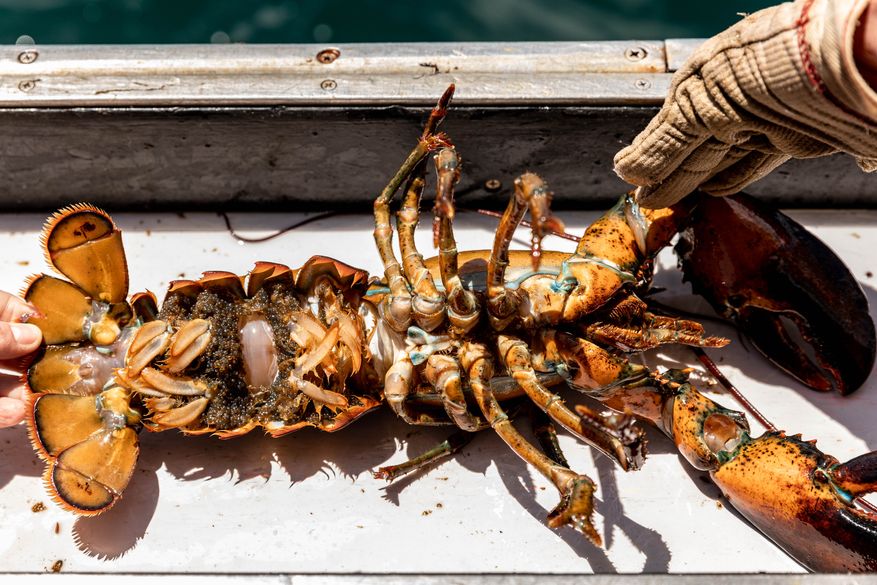
Sustainable Seafood: How Maine's lobster fishery ensures its sustainability
Maine’s lobster fishery is rightly hailed as being one of the most sustainable fisheries in the world. Maine was the first state to adopt regulations around lobster fishing - in 1872 Maine required egg bearing females to be thrown back. Since that time, a variety of additional measures have been put in place. Today, fishermen must put a “v-notch” in the tail of every egg bearing female and throw her back; and any female lobster caught with or without eggs that has a v-notch must be thrown back, protecting the fishery brood stock. There are size restrictions - fishermen can’t keep lobsters with a carapace (the body shell, that goes from the eye socket to where the tail begins) smaller than 3-1/4 inches or larger than 5 inches. Wonder why we throw the large ones back? Well, supposedly, because lobsters like to have mates that are the same size as them, and since there is brood stock that is protected through the V-notch system, once the males reach a certain size, we leave them be so those larger females can find a partner just the right size. Other regulations, such as trap limits and a limited entry (meaning it’s near impossible to get a commercial lobster license unless you come up through the student fishing and apprentice program) are also all means to ensure a sustainable fishery.
But perhaps the biggest factor in Maine’s sustainable fishery is its owner operator requirement. The owner operator requirement means that the fisherman who has the license is the only one who can fish his traps. So, if a fisherman decides to take a vacation, for example, he can’t ask a friend to haul his “gear” for him. Every one of Maine’s lobster traps is hauled by the guy or gal who owns the traps and the license that goes with it. In an age of consolidation, this individualistic owner-operator requirement has bucked the trend of corporate conglomerates, and has helped Maine fishing communities stay afloat economically. Maine’s lobster fishing industry is truly a small, owner-operator industry, one passed down through the generations and one that cannot be bought out. The individual responsibility that goes with the fishery and the pride in the fishery helps to ensure its sustainability - Maine’s fishermen seek to care for the fishery because it belongs to them and their families.
For more information on sustainable seafood practices within the lobster industry, check out our YouTube channel here.





